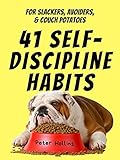Are you struggling to find the motivation to push through challenges and achieve your goals? Developing grit may be the key to unlocking your potential. Grit is defined as the combination of passion and perseverance in pursuit of long-term goals. It is a mindset that allows individuals to endure and overcome obstacles, failures, and setbacks.
To inspire and motivate you, we’ve gathered 21 inspirational stories of individuals who have developed grit and achieved great success. From athletes to entrepreneurs, these individuals have faced adversity and used their grit to push through and achieve their goals.
By reading about their experiences and habits, you can develop your own grit and set yourself up for success. So, let’s dive into these stories and see how you can develop the mindset of a gritty individual.
Key Takeaways
- Grit is the combination of passion and perseverance in pursuit of long-term goals, and can be cultivated through mindset and behavior.
- Daily practices such as meditation, exercise, and journaling can help develop a positive mindset and mental toughness, which are important for developing grit.
- Examples of successful individuals such as Michael Jordan, J.K. Rowling, Oprah Winfrey, and Elon Musk can teach us the power of persistence, resilience, self-discipline, and taking calculated risks in achieving success.
- Taking risks can lead to benefits such as innovation, learning from failure, increased confidence, and potential reward, but requires weighing the pros and cons and making informed decisions.
What is Grit and Why is it Important?
Hey, do you know why grit is so important? It’s because it’s the one quality that sets apart the successful from the average.
Grit is defined as perseverance and passion for long-term goals, and it has been linked to achieving success in various areas of life, including education, career, and athletics.
People with grit have the ability to overcome obstacles and setbacks, push through challenges, and maintain their focus and motivation towards their goals. Fortunately, grit is not something that is solely determined by genetics or personality traits.
It can be cultivated through mindset and behavior. Cultivating a growth mindset, where challenges are seen as opportunities for growth and learning rather than as threats, can help develop grit. Additionally, practicing self-discipline, setting specific and achievable goals, and seeking feedback and guidance from mentors and role models can all contribute to building grit.
By intentionally developing these habits, you can set yourself apart and increase your chances of achieving long-term success.
Michael Jordan: The Power of Persistence
You can learn a lot from Michael Jordan’s journey to success and how he never gave up on his dreams. Despite being cut from his high school basketball team, Jordan didn’t let that setback bring him down. He used it as motivation to work harder and improve his skills.
Overcoming failure is a key component of developing grit and Jordan’s persistence is a prime example of this. He constantly faced challenges and obstacles throughout his career, but he never let them defeat him. Jordan stayed motivated by setting goals, visualizing success, and surrounding himself with a supportive team.
His unwavering determination and drive to succeed have made him a legendary athlete and an inspiration to many.
J.K. Rowling: The Importance of Resilience
When it comes to bouncing back from adversity, J.K. Rowling’s story teaches us the importance of resilience. Before becoming a world-renowned author, Rowling faced multiple rejections from publishers. Her manuscript for the first Harry Potter book was rejected by 12 different publishers before finally being accepted.
Her story shows us that even the most successful people face failure and rejection, but it’s their ability to keep going that sets them apart. Rowling’s life also showcases the impact of failure on one’s personal and professional life. She was a struggling single mother, living on welfare, before her writing career took off.
She used her personal experiences and struggles to create relatable and beloved characters in her books. Her success is a testament to the power of perseverance and resilience in overcoming adversity. Rowling’s story teaches us that failure is not the end, but rather an opportunity to learn, grow, and ultimately succeed.
Oprah Winfrey: The Value of Self-Discipline
By following Oprah Winfrey’s example, you can learn the value of self-discipline and how it can help you achieve your goals.
Oprah is a self-made billionaire who came from humble beginnings. She was born in poverty, raised by a single mother, and experienced many hardships throughout her life. However, she never let her circumstances define her. Instead, she used her self-motivation and determination to overcome obstacles and achieve success.
One of Oprah’s most notable achievements is the creation of her own television network, OWN. However, this success did not come easily. Oprah faced many challenges and setbacks in the process. But through it all, she remained focused and disciplined. She knew that in order to achieve her goals, she had to stay committed and work hard every day.
By practicing self-discipline and staying motivated, Oprah was able to overcome any obstacle in her way and create a successful career for herself. Her story is a testament to the power of self-discipline and the importance of staying focused on your goals.
Elon Musk: The Benefits of Taking Risks
Elon Musk’s success is a testament to the advantages of taking calculated risks. Here are some benefits of taking risks that you can learn from his story:
-
Innovation: Taking risks pushes you outside of your comfort zone and forces you to think creatively. Elon Musk’s ventures, such as SpaceX and Tesla, were born out of his desire to innovate and disrupt industries.
-
Learning from failure: Failure is an inevitable part of taking risks, but it also provides valuable learning opportunities. Elon Musk has experienced many setbacks throughout his career, but he’s used these experiences to grow and improve his future projects.
-
Confidence: Taking risks can help you develop confidence in your abilities and decision-making skills. Elon Musk’s bold moves, such as launching a car into space, demonstrate his confidence in his vision and ability to execute it.
-
Reward: Taking risks can lead to great rewards. Elon Musk’s risk-taking has resulted in him becoming one of the richest people in the world and a leader in the tech industry.
Remember, taking risks doesn’t mean being reckless. It means weighing the pros and cons, analyzing the potential outcomes, and making an informed decision. Embracing risk-taking and learning from failure can lead to innovation and success.
Tips for Developing Grit
You can cultivate resilience by embracing challenges and maintaining a positive attitude towards obstacles. Daily practices such as meditation, exercise, and journaling can help you develop a positive mindset. These practices can help you build mental toughness and make you more resilient to stress and adversity.
In addition to daily practices, mindset shifts are also important for developing grit. You need to believe that you have the ability to overcome obstacles and push through difficult times. This requires a shift in how you view failures and setbacks.
Instead of seeing them as roadblocks, view them as opportunities to learn and grow. With these daily practices and mindset shifts, you can develop the grit needed to achieve your goals and overcome any obstacle in your path.
Frequently Asked Questions
What is the history of the concept of grit and how has it evolved over time?
If you want to understand the evolution of grit and its historical perspective, you need to go back to the earliest ideas about perseverance and resilience.
The term ‘grit’ as we know it today was coined by psychologist Angela Duckworth in her 2007 paper, ‘Grit: Perseverance and Passion for Long-Term Goals.’
However, the concept of grit has been around for centuries, from ancient philosophers like Aristotle who emphasized the importance of persistence, to more recent research on resilience and self-control.
Over time, the definition of grit has expanded to include not just perseverance, but also passion, resilience, and a growth mindset.
As our understanding of grit continues to evolve, so too do the strategies and habits that can help us develop and cultivate this important trait.
How do cultural and societal factors affect the development of grit in individuals?
When it comes to developing grit, cultural impact and personal experiences play a significant role in shaping an individual’s level of perseverance and resilience.
Your upbringing, community, and societal norms all contribute to your perception of what it means to be gritty. For example, cultures that prioritize individualism and self-reliance may place a greater emphasis on grit and determination. On the other hand, cultures that value community and interdependence may view grit in a different light.
Additionally, personal experiences such as overcoming adversity, facing challenges, and receiving support or encouragement can all shape your grittiness. Ultimately, the development of grit is a complex and multifaceted process that is influenced by a range of cultural and societal factors.
Can grit be developed at any age or is it more effective to start developing it at a young age?
You may be wondering whether grit can be developed at any age or if it’s more effective to start developing it at a young age. The good news is that grit can be developed at any point in life, and there are benefits to developing it later in life.
For example, you may have gained more life experience and wisdom, which can help you develop a deeper understanding of what it takes to persevere in the face of challenges. Additionally, mentorship can play a crucial role in developing grit, regardless of age.
A mentor can offer guidance, support, and encouragement, and can help you stay accountable as you work towards your goals. So don’t let age hold you back from developing grit – it’s never too late to start building resilience and perseverance.
Are there any negative consequences of having too much grit or being overly persistent in pursuing goals?
If you’re someone who’s always pushing yourself to the limit and never giving up on your goals, you might be wondering if there are any downsides to having too much grit.
While it’s true that being persistent and determined can lead to great success, there is such a thing as being too focused on your goals.
When you’re overly fixated on achieving a specific outcome, you might neglect other important aspects of your life, such as your relationships, health, or mental well-being.
That’s why it’s essential to balance your grit with self-care and make sure you’re taking care of yourself along the way.
Remember, achieving your goals is important, but so is living a well-rounded and fulfilling life.
How can individuals strike a balance between grit and self-care or taking breaks when needed?
To strike a balance between grit and self-care, it’s important to recognize that persistence is not always the best approach.
While setting and achieving goals is important, it’s equally important to take breaks and practice self-care. Pushing yourself too hard can lead to burnout and ultimately hinder your progress.
Finding balance in goal pursuit means setting realistic expectations and taking the time to rest and recharge when necessary.
It’s okay to take a step back and reevaluate your approach, adjust your goals, and prioritize self-care.
Ultimately, finding a healthy balance between persistence and self-care will lead to greater success and well-being in the long run.
Conclusion
Congratulations! You’ve just finished reading about 21 inspirational stories showcasing habits that develop grit.
Grit is an essential trait that helps individuals overcome obstacles and achieve their goals. It’s a combination of passion, perseverance, and resilience.
Each of the stories featured in this article highlights a different aspect of grit. From Michael Jordan’s persistence in the face of failure to Oprah Winfrey’s self-discipline, these individuals have developed habits that have helped them succeed in their respective fields.
By learning from their experiences and adopting these habits into your own life, you too can develop the grit necessary to achieve your own goals. Remember to stay passionate, persevere through difficult times, and bounce back from setbacks.
With grit, anything is possible!














































































































